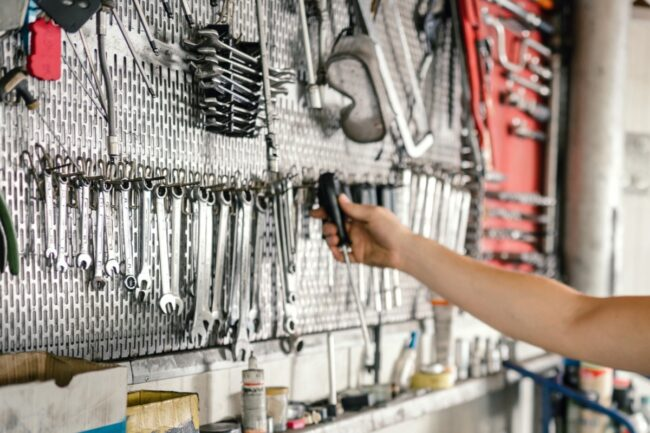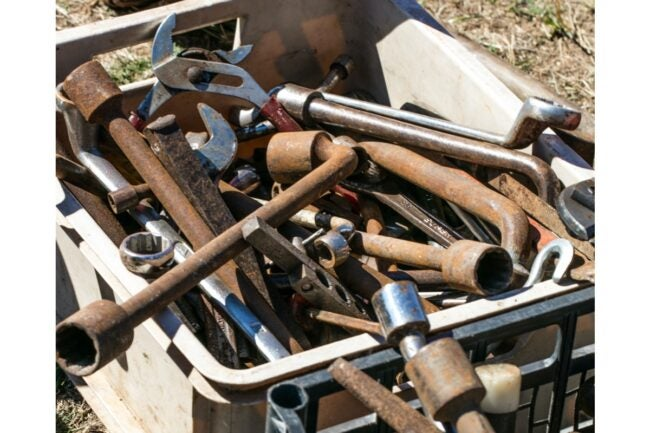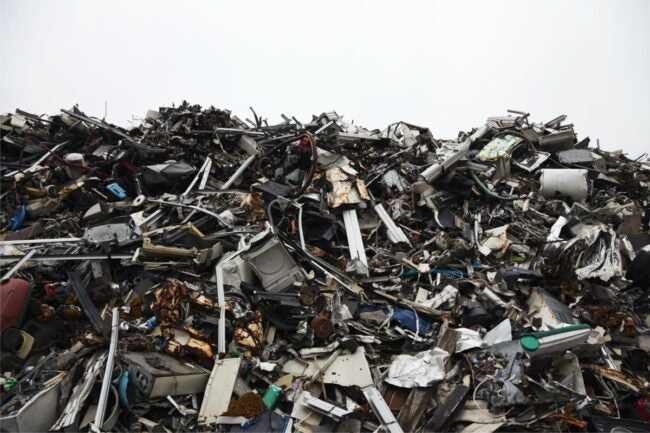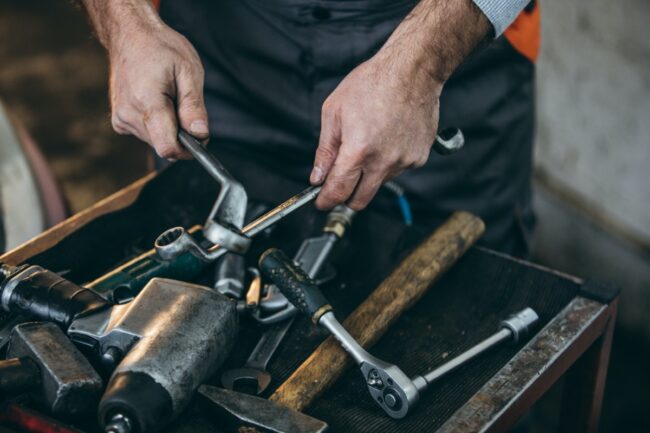While they may look sturdy, tools don’t last forever. Instead of hoarding old or broken tools in your workshop, consider disposing of them in the following ways
DIY enthusiasts and professionals love their tools, but they’re also keenly aware of this harsh reality. Tools aren’t meant to last forever. Whether they’re damaged due to age or poor quality, obsolete and in need of an upgrade, or haven’t been used since a one-off project three years ago, leaving old and broken tools in place can clutter a workshop.
However, it’s important to know how to safely dispose of old or broken tools, rather than just throwing them in the trash or recycling bin. Here are some tips on how to dispose of old or unusable tools in your workshop.
Try your local trash and recycling center.
Most trash collectors won’t accept power tools left in curbside recycling bins, but many trash and recycling companies that take appliances will also take power tools for a fee. This can get expensive quickly, but in some areas, it may be the only viable option for large power tools that are past their useful life.
Give them to a friend.
Homeowners who have functional old tools lying around that they no longer use much may want to try giving them to family and friends. Many DIYers are on a budget and can’t afford to buy new tools, so they would appreciate a gift. If you have a young person in your neighborhood who is always willing to help, a box of old tools may be a great opportunity to start a part-time handyman job.
Donate.
If you find it difficult to give old tools to someone you know, there are many nonprofit organizations that will take them – Habitat for Humanity, the Salvation Army and churches are happy to take donated tools, sell them and use the profits to fund housing projects or food banks. Some of these organizations are doing the same. These organizations can also provide receipts so that these donations can be deducted from your taxes.

Help run a library of tools.
Just like a regular library, a tool library allows members to borrow, use and return tools. By donating tools to these organizations, people who can’t afford tools can have access to the best tools available. Search the Internet for your local tool library.

Contact the manufacturer.
Many tool manufacturers accept old or broken power tools that customers bring to an authorized dealer – DeWalt, Bosch, Festool, Black and Decker and many other brands take them, take them apart and recycle them. This may be a better option than spending money to recycle at your local junk center.
Consider yard sale and sorting sites.
There’s nothing wrong with turning old tools into a little cash (many DIYers take them to hardware stores to buy new tools and supplies). Holding yard sales in the spring and summer may help you get some of your still-useful tools off the garage shelves.
Alternatively, listing some items on sites like Craigslist or Facebook Marketplace can have a similar effect. Buyers get a good deal on the tools they need, and sellers get some extra spending money for their next trip to the tool dealer.
Tip: Do a little research before selling tools online. Some older tools are antiques and can be incredibly valuable to the right buyer.

Upcycling is also important.
Giving new life to old tools may mean completely changing their purpose. If you like an industrial or rustic feel, old tools can make great wall art or office decor. Some crafters like to turn old saw blades into knives. Hammers can become door stops or door knockers. With a little ingenuity, old tools can live on in new uses.
Consider scrapping a broken tool.
If you can’t manage it, take it to a scrap metal recycling facility. Broken metal tools can be taken to a scrap yard for a small amount of money. Scrapyards pay by the weight of the metal, whether it’s tools, pipes or wires. A bucket full of broken screwdrivers, broken drill bits, hammer bits and bent saw blades can weigh several pounds and can be of little value.











